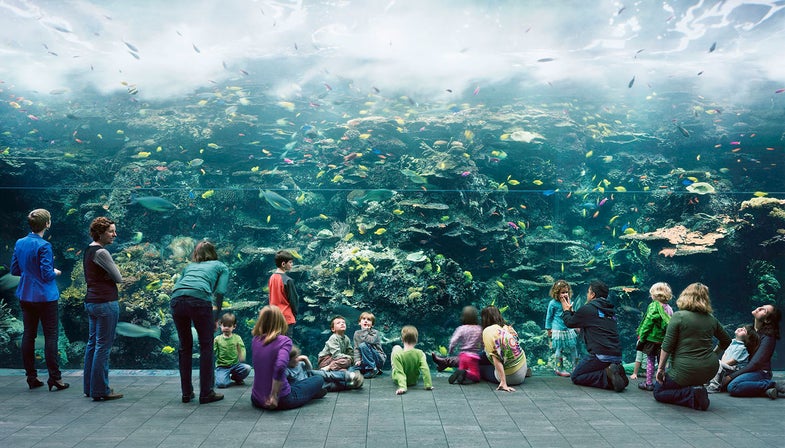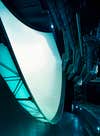Thomas Struth Explores the Relationship Between Human Beings and Technology
Atlanta's High Museum is the first U.S. venue to exhibit new work by the photographer

The High Museum in Atlanta, Georgia, will be the first in the U.S. to display an exhibition of new work by renowned German photographer Thomas Struth.
Thomas Struth: Nature & Politics includes more than 30 of Struth’s large-scale color photographs, ranging in content from architecture to technology and people.

“Struth is one of the most important contemporary artists, and in the last ten years his work has taken an interesting turn by exploring the concept of innovation in tandem with how human ingenuity and creativity shape our experience of the world,” Gregory Harris, assistant curator of photography at the High, tells American Photo.

Nature & Politics explores the inner workings of the technology and processes the public might not normally be privy to—whether the interiors of an operating room, a space shuttle, or a robotics laboratory.
“Struth’s photographs of advanced technology evolved out of his photographs of jungles,” explains Harris. “On a formal level, they have similar density that is at once overwhelming, yet draws you in and entices you to try and untangle what you’re looking at.”

The photographs capture intricate structures, serving as a physical depiction of the amount of detail and innovation needed to make these new inventions successful. The tangled wires and apparent disarray of a nuclear fusion reactor or a massive robotic structure looming over a human body in the operating room show the complexities behind man-made structures, while also highlighting how little the general public understands of its creation.
“The technology pictures really get to the heart of Struth’s exploration of creativity,” Harris says. “Struth is interested in how the heights of human ingenuity are no longer accessible to the mass of humanity. In some ways, these images celebrate the incredible things humans are capable of, and in others, they regard these achievements with a great deal of skepticism.”

The show is especially fitting at the High because some of the photographs were actually created by Struth in Atlanta. His image of the Georgia Aquarium is part of the High’s permanent collection, and two other photos depicting robotics workrooms at the Georgia Institute of Technology are also in the show.

“We strive to present exhibitions that are both internationally significant and regionally relevant, it is important to us that our audience feels connected to the work…The robotics labs in particular are places that the general public does not have access to, so I think it will be revealing for our audiences to see these sites of technological innovation right here at home,” says Harris.

While the massive photographs show these hidden and protected interiors in great detail, the untrained eye would still be unable to decipher what is happening within the frame.
“The inability to comprehend something even in the face of vast information is an idea Struth grapples with here,” says Harris.

Nature & Politics opens Oct. 16 and be on view at the High until January 8, 2017.
